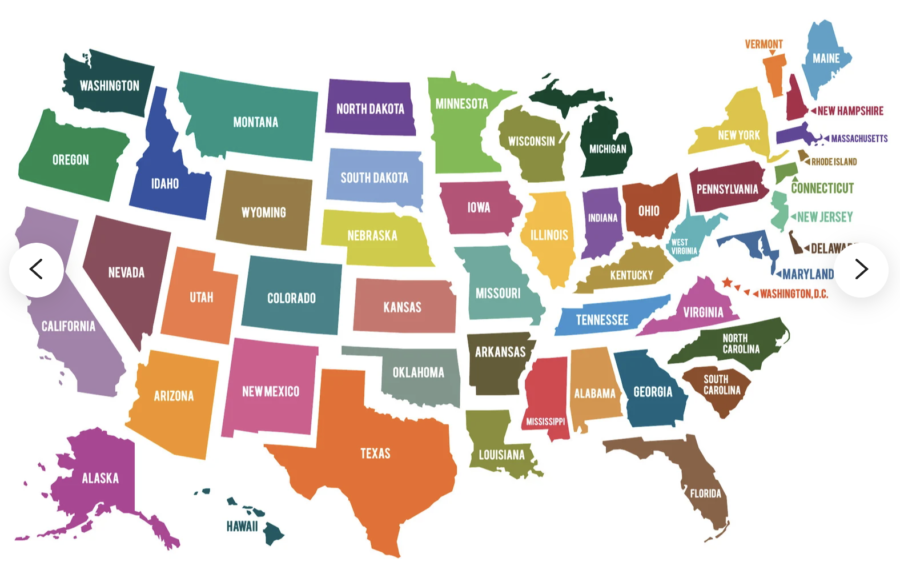States Revamp Reading Policies and Teacher Training

Sarah Schwartz has written a series of articles for Education Week about reading and writing instruction and the science of reading. Her July, 2022 piece is titled Which States Have Passed ‘Science of Reading’ Laws? What’s in Them? Education Week tracked the 29 states plus Washington, D.C., that have state legislation or policy related to evidence-based reading instruction requirements, such as within teacher preparations programs, teachers certification or license renewal, professional development or coaching, assessment, materials and curricula that can be used to identify reading difficulties or measure reading progress, and instruction and/or intervention for struggling readers. Often, the professional development requirements are related to dyslexia-related legislation, such as the Arizona Dyslexia Training Designee initiative, the Oregon Dyslexia Training initiative, or the Ohio Dyslexia Support Laws. However, the absence of any type of federal requirement for teacher training means that there is wide variation among the kind of pre-service and in-service training that teachers receive, and requirements for awareness and adoption of research-based instruction. For example, a 2021 report by the National Council on Teacher Quality titled Knowledge of Early Reading notes that only 20 states require elementary teacher candidates to pass a licensure test that is well grounded in the science of reading, and that “most states continue to lack a comprehensive set of policies to improve teacher knowledge of evidence based early reading methods.” (p. 3)
Keys to Literacy professional development courses, including our Keys to Beginning Reading and Understanding Dyslexia courses, have been vetted and are now on vendor approved lists for multiple state teacher training lists, including Arizona, Colorado, Idaho, Kentucky, Louisiana, Ohio, Oregon, and Rhode Island.
Most of the state science of reading aligned training requirements focus on educators in grades K-5, such as the Colorado READ Act requirement that all K-3 teachers complete an approved course such as Keys to Beginning Reading that was selected to be the live training option offered for free by state trainers. But some, such as the new Idaho Code 33-1811 Dyslexia Professional Development requirement, includes educators in grades 6-12. Some states cover the cost of providing this professional development for schools, such as in North Carolina where the two-year LETRS training is covered (see Schwartz’s Education Week article What is LETRS? How One PD Program is Dominating ‘Science of Reading’ Efforts). Other states also provide stipends to compensate teachers for the time they put into completing science of reading professional development, such as Massachusetts. The Mass Literacy OAPL (Open Access Professional Development Learning) approved courses (with stipends) are being offered to PreK to 3 educators, including several Keys to Literacy courses.
Another article in Schwartz’s series is Listen: A Principal Reflects on Shifting to the ‘Science of Reading’ where she addresses the role of building leadership in helping schools tackle the challenge of making sure evidence-based literacy instruction is being provided to all students. And another of her articles addresses the difficulty of connecting training to classroom use (5 Insights on Getting the ‘Science of Reading’ Into Classrooms). Does professional development alone actually translate into better classroom practice? If implementation coaching is not available, how many educators will be able to change and refine their practice? Will literacy coaches be available at every school to support implementation? Along with providing professional development, will schools create a culture that supports changes? Will they provide research-based reading programs and materials to enable teachers to apply what they are learning in teacher training? My experience related to Keys to Literacy’s professional development work is that without some type of implementation coaching, it is difficult to carry over what is learned in initial teacher training without some outside or peer coaching support. Of the seven characteristics of effective PD listed in the 2017 research report from the Learning Policy Institute Effective Teacher Professional Development (Darling-Hammond, Hyler, Gardner), several require more than initial training (i.e., collaboration in job embedded contexts, coaching and expert support, opportunities for feedback and reflection, sustained duration).
Much can be learned from the success story of Mississippi where an almost 20-year concerted effort by multiple stakeholders to improve the reading achievement of students in Mississippi has resulted in that state showing the highest growth of all states on the National Assessment of Progress in reading, where Mississippi was the only state to show improvement on the fourth-grade assessment. The 2020 article by Bryce Warden (Knowing Better, Doing Better: Mississippi’s Story in Literacy Success) points out that in addition to PD for teachers in the science of reading, the provision of well-equipped literacy coaches who provided support to K-3 classroom teachers was a crucial contributor to the state’s success.
The good news is that the importance of making sure educators become knowledgeable about the science of reading has reached high levels of awareness across the country, which undoubtedly is part of the reason some states are passing literacy-related legislation and increasing the requirements for PD. Emily Hanford’s role in growing this awareness began with her seminal articles Hard Words (2018) and At a Loss for Words (2019), and continues with her recent editorial in the New York Times School is for Learning to Read (Sept, 2022) where she makes this point: “The most important thing schools can do is teach children how to read. If you can read, you can learn anything. If you can’t, almost everything in school is difficult.”

 Joan Sedita is the founder of Keys to Literacy and author of the Keys to Literacy professional development programs. She is an experienced educator, nationally recognized speaker and teacher trainer. She has worked for over 35 years in the literacy education field and has presented to thousands of teachers and related professionals at schools, colleges, clinics, and professional conferences.
Joan Sedita is the founder of Keys to Literacy and author of the Keys to Literacy professional development programs. She is an experienced educator, nationally recognized speaker and teacher trainer. She has worked for over 35 years in the literacy education field and has presented to thousands of teachers and related professionals at schools, colleges, clinics, and professional conferences.
Well said Joan! Exciting times! Supporting teachers with coaching follow up after PD is crucial for success.
This article discusses the revamping of reading policies and teacher training across states, highlighting the importance of literacy education! As someone who values education and literacy, I find it encouraging to see efforts being made to enhance reading instruction for better student outcomes.